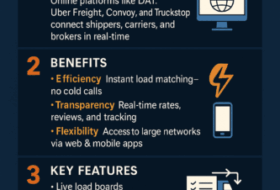Commodity Broker or a Brokerage Firm
Many experienced, successful commodity brokers and traders reach a point where they consider opening their own brokerage firms. They would gain the opportunity to make significantly more income, but the venture also involves a lot more work and responsibility. Making the right choice for your own career depends on your personal strengths, weaknesses, and desires.
Working as a Broker for a Firm
Many people are perfectly happy working for a commodity or other brokerage firm. You can negotiate a good commission split or bonus plan, and the better you perform, the more strength you’ll have in negotiating a good compensation package. Many brokers actually like working for someone else because it means they don’t have to worry about the business side of things. They just produce and go home at the end of the day.
Brokerage firms often provide administrative support as well. The support team offers leads, mentoring, training, trading terminals, and sometimes a credible and respected company name. All of these can help broker conduct more business and earn more money. The costs of these benefits can be enormous if you decide to venture out on your own.
Starting Your Own Brokerage Firm
Almost every broker has some type of issue with the way his firm is being operated. When you open your own brokerage firm, you can run the business any way you prefer. You’ll have the freedom to prosper without anyone holding you back when you’re your own boss, and you’ll receive all commissions on any business you do, keeping 100 percent of all your commission transactions. You can also leverage the efforts of other brokers you bring onboard.
Can You Take Your Clients With You?
The initial startup costs and the ongoing expenses you’ll have to carry every month may become more than you can afford. Theoretically, you’ll be starting out with zero clients and zero dollars in revenue. Expect that it will take time before you generate enough clients and enough revenue to support your business. Meanwhile, you’ll incur a lot of expenses to generate those clients. Having enough startup capital is essential for your venture’s survival.
Brokers can position themselves to make the change if they have a large book of clients they can take to their new firm. However, most employers make you sign a non-compete agreement if you’re going to work for their brokerage firm. They don’t want you to take clients or proprietary information with you when you move on.







